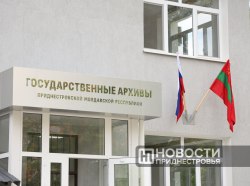All are equal before the law, but someone is more equal — the issue of parliamentary immunity is becoming more and more controversial and sharp. The legal immunity of lawmakers is being talked about not only «in the kitchens» but also in the parliament's halls. Moreover, many MP candidates declared the idea of reforming and even liquidating the institute of parliamentary immunity during their election campaign.
«The parliamentary immunity is a thorny subject. Not once did we hear complaints from our electorate, which is not bad, that the immunity is not necessary and so on. I totally agree to our electors' opinion," said the chairman of the Supreme Council, Vadim Krasnoselsky, in an interview with journalists last week.
The same ideas were voiced by a Renewal Party MP, Oleg Vasilaty.
«There is indeed such a demand in the society; it may be very 'boiled', but this demand does exist. As for the immunity, I haven't heard any remark against revising this institution," said Vasilaty.
In the meantime, another lawmaker, leader of the Communist Party Oleg Khorzhan, addressed to his colleagues in an open letter in which he calls on them to support a draft law on introduction of considerable restrictions to the parliamentary immunity.
«There are over a thousand 'untouchable' officials in our country. In my opinion, this situation is unfair and undemocratic as it forms a privileged caste in our society. It contradicts the principle of citizens' equality before the law and prevents the civil society from being consolidated. There are facts of unpunished crimes committed by MPs and local councillors which arouse citizens' justified indignation," reads Khorzhan's letter.
The revision of the immunity institution, particularly for local councillors, was earlier proposed by the prosecutor's office. Back in October 2015, the republic's prosecutor, Alexander Deli, submitted a draft law provided for bringing local councillors for account on criminal charges and on those unrelated to legislative activities without the council's consent. However, the Supreme Council's dedicated committee is proposing to reject this bill on account of «a disagreement with the proposed mechanism».
According to the prosecutor, «this norm is long overdue in the society» and lawmakers have to respond to the public demand. Meanwhile, some MPs will face a very difficult task — to keep (or break) their election campaign promises and revise their legal privileges.
Strengthening the immunity
At the dawn of the parliamentary era the legal immunity was not regarded as a privilege but rather as protection of people's representatives in the political struggle. This shield was invented by the Englishmen in the 17th century after a long and persistent struggle against the royal power. The famed Bill of Rights (1689), which is a core element of the British constitution, defined the principle of parliamentary irresponsibility. It provides for the protection of «freedom of speech and debate», and the independence of a lawmaking function, thus excluding the possibility of exerting pressure on MPs with the aim to influence lawmaking.
The parliamentary immunity was only applied to the activities performed in the process of lawmaking. This model of MPs' «protection» has underlain the American parliamentary system. The US constitution grants to the members of both Congress chambers immunity from prosecution except for a treason, felony and grave disorderly offence. By the way, the immunity of the American parliamentarians is one of the most limited in the world. They can be prosecuted even for a fact of corruption without the Congress's approval.
A «more privileged» immunity emerged in France after the revolution of 1789. This is when the notion of «parliamentary immunity» was fixed. Its idea was that a parliamentarian could not be called for account without the legislature's consent even when his actions were unrelated to lawmaking. This did not work, however, when a lawmaker was taken in the act. This model of parliamentary immunity had been in common use in Europe until the end of the 20th century.
In the course of time, the parliamentary immunity has come to be understood not only as the protection of legislative power but as an MP's privilege neglecting the principle of equal protection to the law. There were many cases when people's deputies took advantage of immunity to violate the law, but were acquitted by their colleagues and escaped punishment.
In this connection, there has been a trend in the past decades to reduce the content and essence of parliamentary immunity. So, the immunity is not applied to felonies in Belarus and Kazakhstan. Local councillors do not enjoy parliamentary immunity and can be called for account without the council's consent in Russia and Ukraine.
Noblesse oblige, or privilege entails responsibility
The discussion about the revision of the existing institute of parliamentary immunity has been brought up in Pridnestrovie amid numerous law violations by people's deputies. For example, according to the state traffic inspection, at once three deputies were caught using a car under the influence of alcohol on the same day in 2015. And the parliament did not approve bringing these deputies to account.
According to the prosecutor's office, local councillors commit dozens of law violations each year. In 2009−2010, twenty-seven requests were applied for the council's consent to bring councillors for administrative or penal account, and only in seven cases this consent was granted.
«Besides lawmaking, the majority of local councillors work for commercial and other organisations. They frequently breach the rules of law, committing fiscal and traffic offences. Criminal cases also take place," said the republic's prosecutor, Alexander Deli.
Pursuant to the current legislation, in the event deputies break the law, law enforcement authorities may initiate and conduct an investigation, and even bring charges against them. But at the same time, they cannot be subjected to search, arrest or prosecution but for their colleagues' consent. Thus, local councils must determine whether deputies' actions were related to their professional activities or not.
However, as a rule, the deputy corps reject the removal of immunity even in resonance cases when violations are flagrant.
According to Alexander Deli, in most cases when considering the approval for bringing deputies to account, local councillors do not give reasons for their decisions and vote in solidarity.
«Many deputies own enterprises and organisations. When different issues arise, they take advantage of their immunity. Let's put it so, all businesses in Pridnestrovie benefit from budget contracts and budget expenditures. There is competition for the implementation of state programmes," Alexander Deli explained the situation on TV in the autumn of 2015.
The last resonance case took place in 2015 in Grigoriopol district. The local council did not approve the arrest of councillor Alexander Torpan, who is accused of manslaughter on the Dniester. Moreover, Alexander Torpan was re-elected to the council and became its chairman.
«The Grigoriopol incident» has become a watershed point in the matter of immunity. The prosecutor's office has put forward an initiative for restricting the legal immunity of local councillors. The essence of the amendments proposed by Alexander Deli consists in depriving local councils of the right to approve bringing people's deputies to administrative or penal account. It is highlighted, at the same time, that such restriction of deputies' immunity will not affect the work of local legislatures because local councillors, as distinct from MPs, do not solve issues of state importance. Especially since the amendments provide for the retention of the institute of deputies' protection according to which «the local councillor may be brought to penal account for the opinion he expressed and the decision he made within the framework of his powers.»
This format of limited legal immunity will concretely define the fundamental essence of representative authorities: the participation in local councils is an honourable duty, and the main incentive is prestige rather than acquiring the privilege of irresponsibility. The people's deputy is a representative of public interests and must follow the principle 'noblesse oblige', or privilege entails responsibility.
As was noted, the prosecutor's proposal has already been discussed by the dedicated the parliament's committee but failed to meet the lawmakers' approval — they have declared against it being considered by the Supreme Council. Now the corps of deputies are facing a dilemma whether to pass Deli's amendments or propose their own programme for reforming the institute of parliamentary immunity.
Anyway, this conclusion seems very logical following election campaign promises, among which were slogans declaring for the revision or even abolishment of parliamentary immunity.
«This is a test for the newly elected Supreme Council, whose members were elected under the slogans of abolishing immunity. It will become evident soon if they have political will to revise the institute of parliamentary immunity," said president at the final press conference of 2015.
However, last week the parliament's speaker Vadim Krasnoselsky said he was ready to refuse the immunity in case all officials refused it.
«I wonder why this issue is only limited to MPs. We have plenty of other officials who enjoy this status. I officially declare: I do not mind possessing no immunity. But let's give it a complex approach. Are the rest ready?» said the speaker.
According to the constitution, only members of parliament, judges and the president enjoy the legal privilege.
So, there is a radical proposal to solve this issue under the principle «for all or for no one». Instead of giving a concrete response to the public demand to reform the principle of immunity, there are talks to abolish it for everyone. This approach leads to a stalemate situation: abolishing the very principle of immunity for all officials means reconstructing the whole system of checks and balances. This may result in the total destruction of the state machinery. It is evident that applying the formula «for all of for no one» is unlikely to meet the public demand for the restriction of deputies' immunity
Nikolay Syrbu








